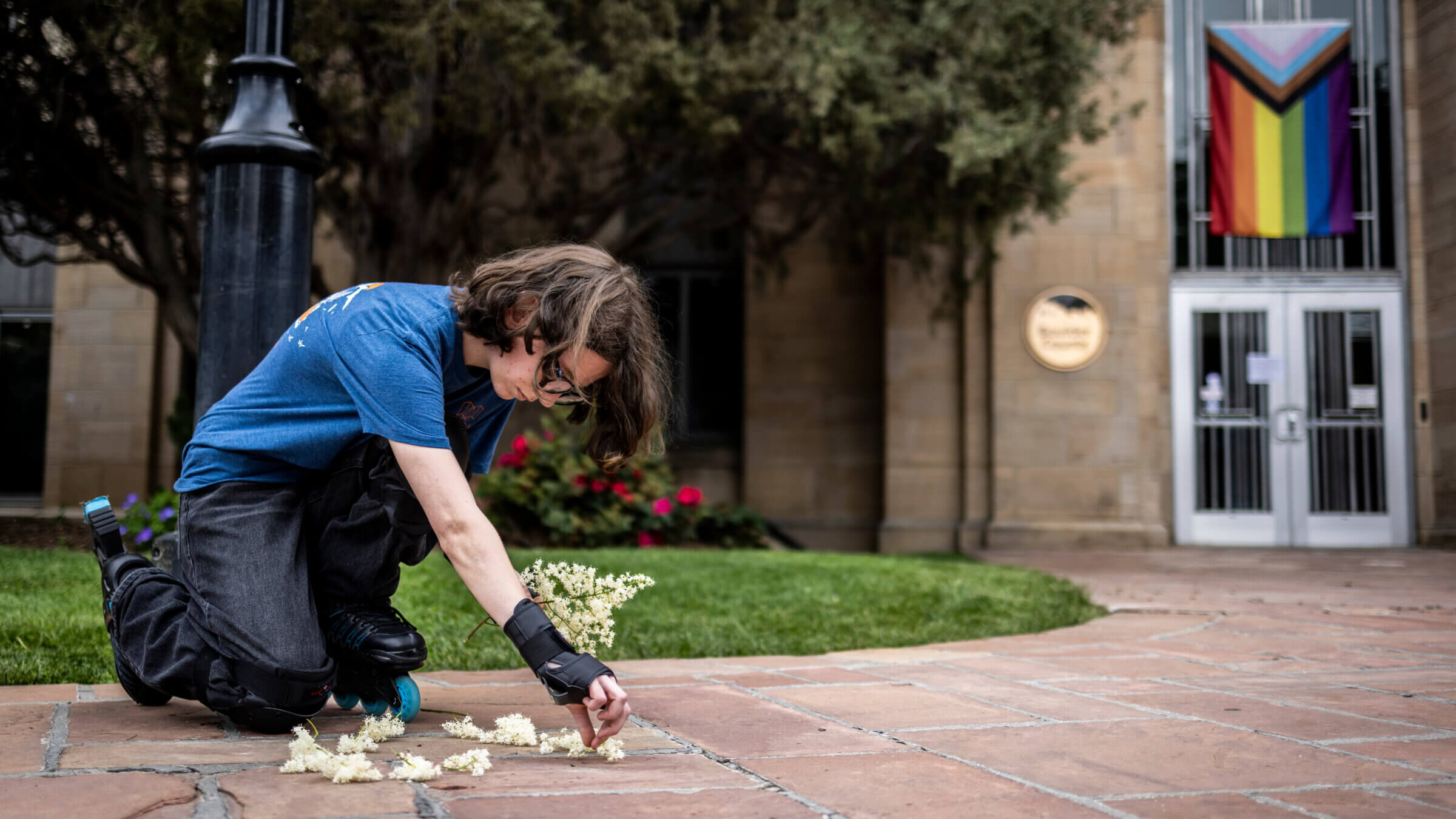What we know about the burn attack on a Jewish event in Boulder
There were 8 victims hospitalized and the alleged assailant faces hate crime charges

Wilbur Thayer, 17, of Boulder, lays flowers at the site of the attack outside the Boulder County Courthouse on June 2, 2025 in Boulder, Colorado. Photo by Getty Images
Police arrested a 45-year-old man for attacking participants at an event held on behalf of Israeli hostages in Boulder, Colorado, on Sunday. Here’s everything we know about the incident.
Who are the victims of the Boulder attack?
Police say there are eight victims aged 52 to 88 who were hospitalized with burns, and another four who suffered minor injuries. The victims were part of Run for Their Lives, a weekly vigil and march for Israeli captives who remain held by Hamas. So far, little information has emerged about the identity of those injured or their condition, although The New York Times reported that at least two were flown to a burn unit in nearby Denver.
Leo Terrell, the chair of the Trump administration’s antisemitism task force, said one individual hospitalized after the attack was a female Holocaust survivor. She has not been named.
Johanna Schmidt told The Denver Post that her father suffered second-degree burns on his leg during the attack, though declined to share his name. Schmidt said there were “lots of other victims who were worse off” than her father.
In videos of the attack shared on X (formerly Twitter) by an account named BHflyer5, a bloodied woman is seen lying on the ground as others pour water from a nearby fountain over her wounds. The owner of the account after this story’s publication contacted the Forward and identified himself as Brian Horwitz.
Witnesses described a chaotic and violent scene with one man recounting to Denver 7 news “people’s skin falling off their bodies and blood and cuts.”
Aaron Brooks, a Boulder resident, said on Facebook that he was cycling near the event when he heard someone cry out for a doctor and he followed the hubbub to see what was happening.
He described what he saw: “A person on fire. Blood on the sidewalk.” And the alleged assailant: “A man with no shirt and two bottles in his hands, screaming: ‘You’re burning my people!’”
Another Boulder resident, Brandon Hoover, told The Denver Post that he and his girlfriend saw flames and smelled burning flesh.
Who is Mohamed Sabry Soliman, suspect in the attack?
Mohamed Sabry Soliman, 45, was arrested by Boulder police after being pointed out by witnesses. Federal authorities charged Soliman with multiple felonies, at least one of which was elevated to hate crime status.
Soliman is in the United States “illegally,” according to Tricia McLaughlin, a deputy Homeland Security secretary. He entered the United States on a tourist visa in August 2022 and applied for asylum the following month, McLaughlin said. His tourist visa expired in February 2023. ABC reported that Soliman eventually obtained a work permit that expired on March 22 of this year.
The New York Times quoted the Department of Homeland Security as saying that Soliman is an Egyptian national. A charging document said he lives in Colorado Springs with his wife and five children.
President Donald Trump, on social media, said Soliman “came in through Biden’s ridiculous Open Border Policy.”
Soliman allegedly yelled “Free Palestine” during the attack. The charging document quoted Soliman as saying that he had planned the attack for a year and that he told investigators that he wanted to “kill all Zionist people and wished they were all dead.” He delayed the attack until after his daughter graduated, the document said.
Are Jewish and pro-Israel events safe to attend?
The Secure Community Network, which offers Jewish institutions advice on security, ran an online seminar on Monday afternoon to brief communities on how best to secure open space events.
“We are encouraging events to go forward and not to give in to our enemies,” Michael Masters, SCN’s director, said in an interview.
Masters said it was key to ensure “that the security professionals in a community, those working as part of the SCN network, as well as our law enforcement partners, are aware of those events well in advance.”
Masters, speaking before the briefing, said it would include protocols for outdoor events SCN developed during the COVID-19 pandemic, when Jewish communities staged more events outdoors to prevent disease contagion.














